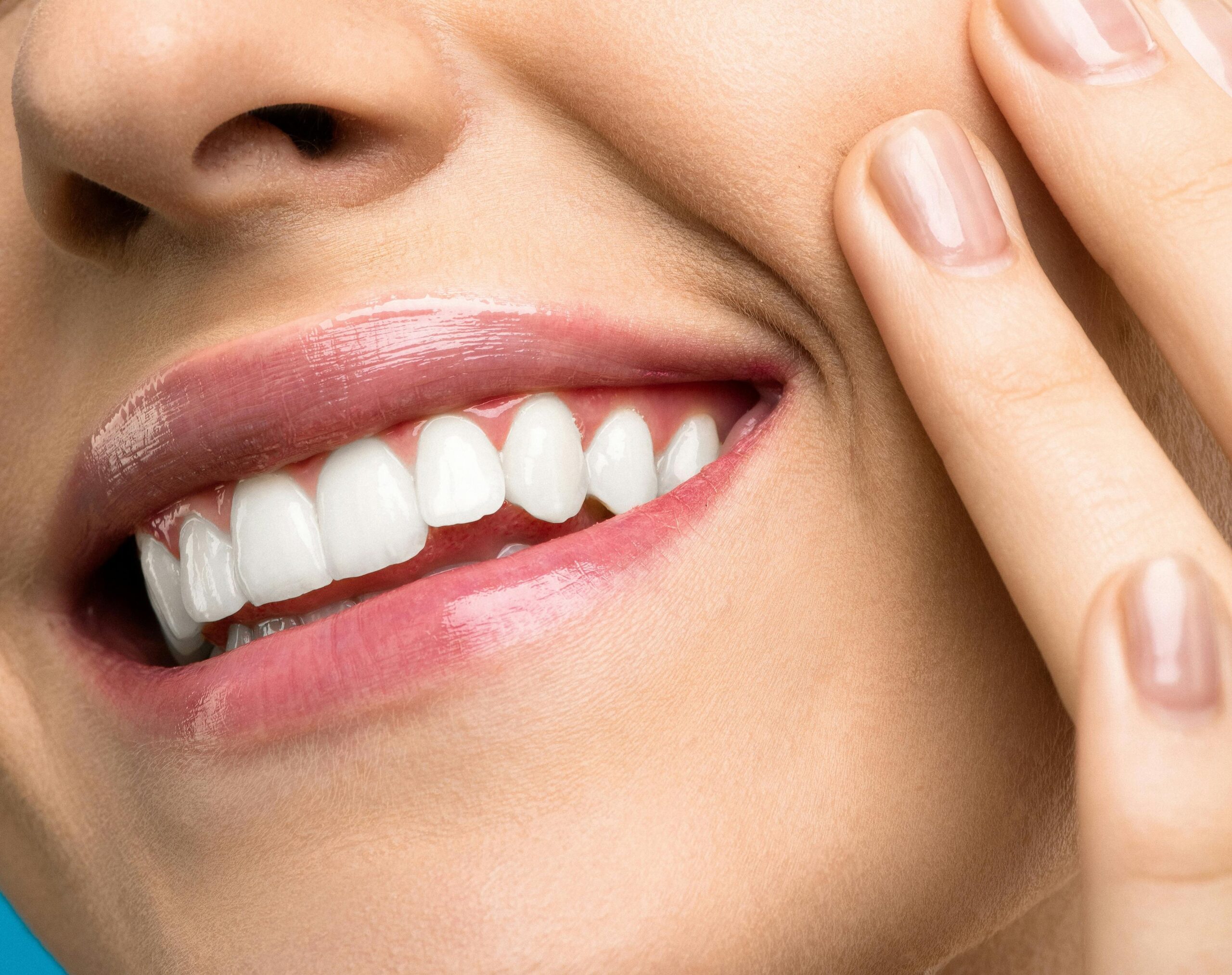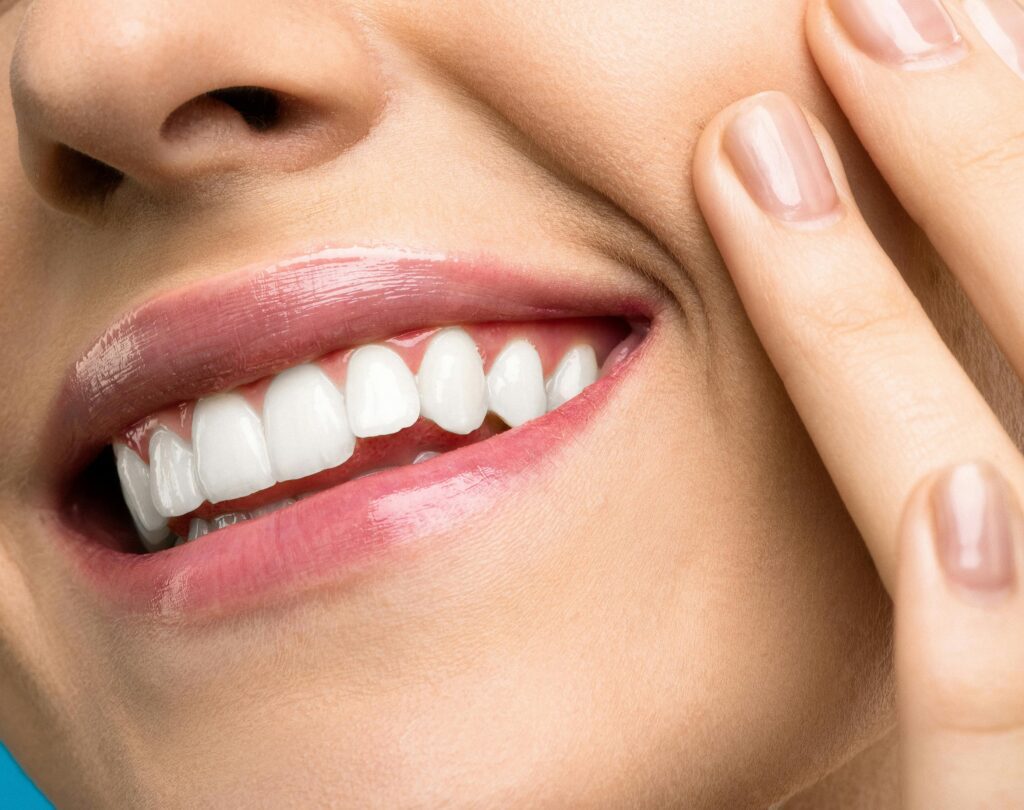Sensitive Gums: Top Causes and Effective Treatments
Sensitive gums can be a real pain, causing discomfort and concern for many people. This common dental issue affects individuals of all ages and can lead to various complications if left untreated. From pregnancy to stress, and from canker sores to vitamin C deficiency, numerous factors can contribute to gum sensitivity, making it essential to understand its causes and available treatments.

In this article, we’ll explore the science behind gum sensitivity and dive into the lifestyle factors that affect gum health. Additionally, we’ll discuss a range of treatment options, from simple home care techniques like using a soft-bristled toothbrush to professional interventions. By the end, readers will have a better understanding of why their gums hurt and how to maintain optimal oral health through these solutions.

The Science Behind Gum Sensitivity
Anatomy of Healthy Gums
Healthy gums play a crucial role in maintaining overall oral health. They form a protective seal around the teeth, preventing bacteria and other harmful substances from reaching the underlying bone and tooth roots. The gums are composed of soft tissue that is firmly attached to the teeth through a network of connective fibers, known as the periodontal ligament.
How Sensitivity Develops
Gum sensitivity often arises when the protective barrier formed by the gums is compromised. This can occur due to various reasons, including periodontal disease, gum recession, and exposure of the tooth roots.
Periodontal disease, also known as gum disease, is a bacterial infection that can cause inflammation and detachment of the gums from the teeth. As the gums detach, the tooth roots become exposed, leading to sensitivity. Common bacteria involved in periodontal disease include Treponema denticola, Porphyromonas gingivalis, and Actinobacillus actinomycetemcomitans.
Gum recession is another condition that can contribute to sensitivity. When the gum tissue pulls away from the teeth, it exposes the tooth roots, which are not protected by the hard enamel layer. This exposure allows stimuli, such as hot, cold, or sweet foods, to reach the sensitive inner layer of the tooth (dentin) and the nerve (pulp), causing pain or discomfort.
Individuals with thin gum tissue or those who have experienced gum recession due to periodontal disease are more susceptible to developing sensitive gums. Additionally, inflamed or sore gum tissue can also lead to sensitivity due to the loss of supporting ligaments, further exposing the root surface and the nerve of the tooth.
To maintain gum health and prevent sensitivity, good oral hygiene habits, such as daily brushing and flossing, and regular visits to a dentist for professional cleanings and check-ups are essential. Addressing underlying conditions like periodontal disease or gum recession is crucial to alleviating gum sensitivity and promoting overall oral health.
Lifestyle Factors Affecting Gum Health
Diet and Nutrition
A balanced diet rich in fruits, vegetables, and whole grains can positively impact gum health. These foods are excellent sources of micronutrients and antioxidants, which have a protective effect on periodontal tissues. Low-glycemic, unprocessed, complex carbohydrates like legumes, whole grains, and vegetables are generally healthy, while high-glycemic, processed, fermentable carbohydrates, such as refined sugar, white flour, and sugary drinks, can contribute to chronic inflammation. Consuming a diet high in fermentable carbohydrates can influence the oral biofilm composition, potentially leading to dental caries and periodontitis.
On the other hand, incorporating raw, uncooked vegetables into the diet can promote oral self-detoxification, reducing plaque buildup, periodontal inflammation, and the risk of caries. Studies have shown that individuals following a vegetarian diet tend to have a lower incidence of gum inflammation and better overall oral hygiene. Additionally, incorporating foods like apples, carrots, leafy greens, salmon, cheese, and yoghurt can be beneficial for gum health due to their natural abrasiveness, vitamin and mineral content, anti-inflammatory properties, and potential to remineralise tooth enamel.
Oral Hygiene Practices
Proper oral hygiene practices are crucial for maintaining healthy gums. Regular brushing and flossing help remove plaque and bacteria from the teeth and gum line, preventing the accumulation of dental plaque and tartar, which are risk factors for periodontal disease [7, 10]. Studies have demonstrated a dose-response relationship between oral hygiene and periodontitis, with poor oral hygiene significantly increasing the risk of developing the condition.
Brushing twice a day with a soft-bristled toothbrush and fluoride toothpaste, flossing daily, using an antibacterial mouthwash, and visiting a dentist regularly for professional cleanings and check-ups are essential components of good oral hygiene. Additionally, avoiding tobacco products, which can impair the body’s immune system and increase the risk of gum disease and oral cancer, is recommended.
Stress and Its Impact
Stress can have detrimental effects on oral health, including an increased risk of teeth grinding (bruxism), canker sores, dry mouth (xerostomia), gum disease, and infection [11, 12]. Stress can weaken the immune system, making it more difficult for the body to fight off infections and diseases, including gum disease. Furthermore, stress can lead to neglect of self-care practices, such as brushing and flossing, and a tendency to consume sugary and unhealthy foods, which can exacerbate oral health issues.
Canker sores, also known as aphthous ulcers, are painful sores that can occur in the mouth, and stress has been identified as a risk factor for their development [11, 12]. Stress and tissue injury are the most common causes of simple canker sores, while complex canker sores are typically caused by underlying health conditions, such as an impaired immune system, dietary problems, or gastrointestinal tract diseases.
To maintain healthy gums, it is essential to manage stress levels through various techniques, such as exercise, meditation, or seeking professional help if necessary. By addressing stress and adopting a balanced diet and proper oral hygiene practices, individuals can promote overall gum health and reduce the risk of gum sensitivity and other oral health issues.
Treatment Options: From Home Care to Professional Interventions
Over-the-Counter Solutions
A great and easy way to relieve painful gums is by applying compresses on the gums . Either hot or cold compresses can help reduce swelling and alleviate pain. Salt water rinses are another effective home remedy that aids in preventing bacterial growth and eliminating existing bacteria in the mouth.
Hydrogen peroxide can soothe pain and reduce gum inflammation due to its germ-killing properties . Teabags, when applied to the affected area, can also provide relief from painful gums . Tea tree oil, known for its natural anti-inflammatory and antibiotic properties, is perfect for treating painful gums and other oral ailments.
Turmeric, with its antioxidant and anti-inflammatory properties, can help reduce swelling, pain, and inflammation of the gums. Over-the-counter pain relievers such as aspirin, acetaminophen, or ibuprofen can provide instant pain relief when gum pain becomes unbearable.
Oral anesthetic gels, available over the counter, combine natural and synthetic ingredients to numb the gums and temporarily relieve pain. Dental sprays made with essential oils can also alleviate gum pain.
Improving nutrition by incorporating calcium, vitamin C, and folic acid into the diet can help prevent and improve gum health . While home remedies can soothe mild gum pain, persistent or severe pain should be evaluated by a dental professional .
Prescription Medications
Chlorhexidine, a disinfectant and antiseptic, has been used in dental medicine since the 1950s [1, 2]. It works by killing bacteria in the mouth and forming a protective antibacterial layer over the teeth and gums to prevent plaque buildup for up to 12 hours . Chlorhexidine has been shown to be more effective in treating gingivitis and is recommended for short-term use after professional dental treatments to control periodontitis.
Antibiotics such as doxycycline, metronidazole, tetracycline, and minocycline may be prescribed in limited cases of gum disease. These antibiotics work by reducing or temporarily destroying the bacteria that cause gum disease. However, due to concerns about antibiotic resistance, they are used sparingly and only in combination with good oral hygiene and professional dental therapies.
Antibiotic gels, fibers, or chips can be more effective than oral antibiotics. These topical antibiotics are placed into periodontal pockets, releasing medication slowly over several days to reduce the bacterial load. They are often used in conjunction with specialised gum health treatments like root planing and scaling or deep cleaning.
Dental Procedures
In cases where over-the-counter and prescription treatments are ineffective, dental procedures may be recommended. Dental adhesives or sealants can be applied to exposed root surfaces to form a protective layer and alleviate sensitivity.
For severe gum recession, a gum graft procedure may be performed. In this procedure, a small amount of tissue is taken from another area of the mouth or from donor tissue and attached to the affected area, protecting the exposed root and lessening sensitivity.
Dental bonding, also known as dental sealant, can create a natural-looking barrier on exposed tooth roots. This treatment involves applying tooth-coloured resin to the exposed roots, providing a protective barrier that lasts between five and ten years.
In extreme cases of severe gum recession or trauma, a root canal treatment may be suggested. This procedure removes the sensitive nerves from the tooth, eliminating sensitivity and discomfort in the treated tooth.
When dealing with sensitive gums, it is essential to consult with a dental professional to determine the underlying cause and receive appropriate treatment. A combination of home care, prescription medications, and professional dental procedures may be necessary to effectively manage gum sensitivity and promote overall oral health.
Conclusion
Prevention: Enzyme-Based Toothpaste for Gum Care
To prevent the need for these extensive treatments, it is best to use toothpaste specifically designed for gum care. Enzyme-based toothpaste, like Enzim, is particularly effective in maintaining gum health and preventing sensitivity.
Benefits of Enzyme-Based Toothpaste:
- Gentle Cleaning: Enzyme-based toothpastes use natural enzymes to break down plaque and food particles, reducing the risk of gum disease without harsh abrasives.
- Anti-Inflammatory Properties: Enzymes such as papain (from papaya) and bromelain (from pineapple) have anti-inflammatory properties that help soothe irritated gums.
- Plaque Control: Regular use of enzyme-based toothpaste can help maintain a healthy oral environment by controlling plaque buildup, a leading cause of gum disease.
- Enhanced Oral Hygiene: Enzymes can enhance the effectiveness of other ingredients in the toothpaste, providing comprehensive care that protects gums and teeth.
Using enzyme-based toothpaste as part of your daily oral hygiene routine can significantly reduce the risk of gum sensitivity and other related issues. By maintaining healthy gums through proper brushing, flossing, and the use of specialised toothpaste, you can avoid the discomfort and complications associated with gum problems.
For more information on the benefits of enzyme-based toothpaste and how it can help maintain your gum health, visit Enzim Toothpaste.


